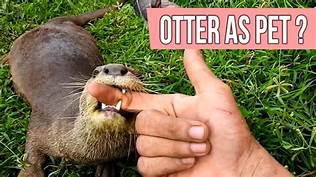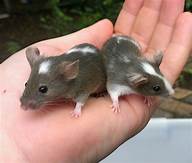Do Otters Make Good Pets?
Otters are adorable, playful, and intelligent creatures that have captured the hearts of many people. With their sleek coats, curious eyes, and playful personalities, it's no wonder why people consider them as potential pets. However, before you rush out to adopt an otter, it's important to understand the complexities of otter care and whether they truly make good pets.

Are Otters Legal to Own as Pets?
1. Legal Restrictions: The legality of owning an otter as a pet varies widely depending on location. In some countries and states, it is illegal to possess an otter without a permit or license. It's essential to check local and state regulations before considering otter ownership.
2. Permits and Licenses: In areas where otter ownership is permitted, obtaining the necessary permits and licenses can be a complex and time-consuming process. These permits often require proof of adequate facilities, experience in caring for exotic pets, and a commitment to providing proper veterinary care.
Can You Provide the Proper Environment?
1. Aquatic Habitat: Otters are semi-aquatic animals that require access to water for swimming, playing, and hunting. A large, clean water enclosure with a filtration system is essential to maintain a healthy environment for an otter.
2. Space Requirements: Otters are active and playful animals that need plenty of space to roam, explore, and engage in their natural behaviors. A spacious enclosure with climbing structures, hiding places, and a variety of toys is necessary to keep them stimulated and happy.
Dietary Needs and Veterinary Care
1. Specialized Diet: Otters have specific dietary requirements that include a variety of fish, mollusks, crustaceans, and small mammals. Providing a balanced and nutritious diet can be challenging and expensive. Additionally, otters require regular veterinary checkups and vaccinations to ensure their health and well-being.
2. Veterinary Expertise: Finding a veterinarian experienced in caring for otters can be difficult. Otters have unique medical needs, and specialized veterinary knowledge is crucial for diagnosing and treating any health issues that may arise.
Social and Behavioral Considerations
1. Social Animals: Otters are social creatures that thrive in groups. Keeping a single otter as a pet can lead to loneliness, boredom, and behavioral problems. Providing companionship with other otters is essential for their emotional and social well-being.
2. Nocturnal Habits: Otters are nocturnal animals, meaning they are most active at night. This can be disruptive to owners who prefer a regular sleep schedule. Additionally, otters may exhibit destructive behaviors, such as chewing on furniture and digging, when left unsupervised at night.
Conclusion
While otters may seem like charming and fascinating creatures, they are not suitable pets for most individuals. The complexities of their care, legal restrictions, dietary needs, and social requirements make them challenging animals to own responsibly. Before considering otter ownership, it's crucial to evaluate your ability to provide a suitable environment, specialized care, and lifelong commitment to their well-being.
Declaration: All article resources on this website, unless otherwise specified or labeled, are collected from online resources. If the content on this website infringes on the legitimate rights and interests of the original author, you can contact this website to delete it.






